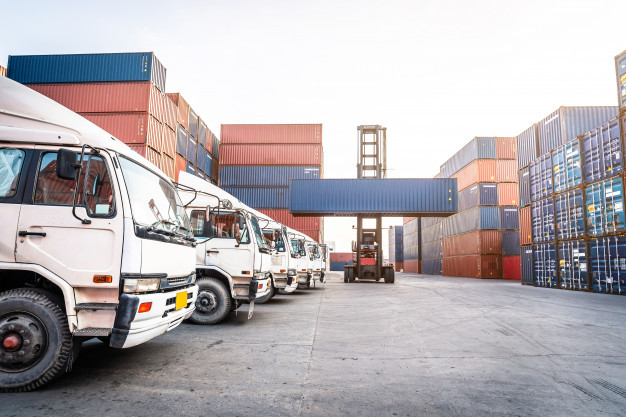Cargo Theft: A Growing Threat to Global Supply Chains
Cargo theft has always been a problem for supply chains, but recent trends show a significant increase in both frequency and sophistication. The impact of these thefts is far-reaching, affecting businesses, consumers, and the global economy as a whole.
The Rising Cost of Cargo Theft
In the first quarter of 2024 alone, there were 925 reported cargo theft incidents, resulting in an estimated loss of nearly $155 million. This represents a 46% increase from the same period in 2023. Thefts are becoming more strategic and high-tech, with criminals employing tactics such as:
- Fictitious pickups: Criminals manipulate legitimate documents and pose as authorized truck drivers to divert cargo to themselves.
- International cargo theft rings: Organized groups are stealing freight virtually, without ever needing to be physically present.
- Load board manipulation: Criminals use online freight-matching services to facilitate identity theft and reroute shipments.
The Impact of Cargo Theft on Businesses
The repercussions of cargo theft extend far beyond the immediate financial loss:
Damaged Reputation:
When a consumer's package is stolen in transit, the blame often falls on the shipping company. This can lead to a loss of trust and customer confidence, damaging the company's reputation. A Deloitte survey found that global executives overestimate customers' trust in their supply chains. Executives gave their own reliability an average score of 80, but customers only gave it a 65.
Financial Losses:
The direct loss of stolen goods is significant, but there are also indirect financial impacts:
- Reduced sales and deliveries: A damaged reputation can lead to fewer sales and deliveries, creating further financial losses.
- Increased expenses: Running a fleet is expensive, and stolen freight eliminates the profit margin, potentially leading to bankruptcy.
- Increased insurance premiums: The threat of cargo theft drives up insurance premiums for businesses.
Disrupted Operations:
Cargo theft can disrupt supply chains in several ways:
- Production delays: Stolen goods can lead to delays in production, especially for industries that rely on just-in-time inventory management.
- Meeting demand: Cargo theft can make it difficult to meet consumer demand, especially for perishable goods.
Increased Security Costs:
Businesses are forced to invest in additional security measures to combat cargo theft, adding to their expenses. These measures can include:
- Real-time tracking: GPS tracking systems provide continuous monitoring of shipments, allowing for early detection of any unauthorized deviations.
- Rigorous vetting: Thoroughly vetting all cargo partners, including verifying identities, checking backgrounds, and confirming the legitimacy of business practices.
- Advanced security technologies: Tamper-evident seals, smart locks, and biometric verification can help enhance shipment security.
- Continuous staff training: Providing ongoing training on the latest security protocols and fraud detection techniques.
Protecting Your Supply Chain from Cargo Theft
To effectively combat cargo theft, businesses must adopt a multi-layered approach to security:
Determine the Highest Risk Areas:
Conduct a risk analysis to identify the most vulnerable points in your supply chain. For example, a probability study found that most cargo thefts involve stealing from a vehicle. Other common areas of vulnerability include truck theft, vehicle theft, and theft from facilities, trailers, and containers.
Implement Security Measures:
Once you have identified the highest risk areas, implement robust security measures to protect your cargo:
- Secure parking: Park vehicles in well-lit, secure areas, and consider using security cameras and motion sensors.
- Use tamper-evident seals: Secure trailers and containers with tamper-evident seals that can easily detect unauthorized access.
- Vet your drivers and carriers: Thoroughly vet all drivers and carriers to ensure their legitimacy. Background checks, driver history, and operating authority verification are essential.
- Train your employees: Train employees on cargo theft prevention measures and how to identify potential threats.
- Partner with law enforcement: Develop strong relationships with law enforcement to report suspicious activity and cooperate in investigations.
Embrace Technology:
Technology plays a crucial role in combating cargo theft:
- Real-time tracking: GPS tracking systems provide valuable insights into shipment location and movement, allowing for real-time monitoring and early detection of any anomalies.
- Visibility software: Software solutions can provide end-to-end visibility into the supply chain, enabling businesses to identify potential risks and take proactive measures.
- Cybersecurity measures: Implement robust cybersecurity measures to protect your systems from cyberattacks that could compromise shipment data and security protocols.
The Future of Cargo Theft Prevention
As cargo theft continues to evolve, businesses must remain vigilant and adaptive. Key strategies for the future include:
- Collaboration: Strong partnerships between law enforcement, businesses, and industry associations are essential for sharing information and coordinating efforts.
- Innovation: Businesses should explore new technologies and security measures to stay ahead of criminals.
- Education: Raising awareness about cargo theft among employees, carriers, and consumers is crucial to reducing vulnerabilities.
Conclusion: Winning the Fight Against Cargo Theft
Cargo theft poses a significant threat to global supply chains, but it's a battle that can be won. By adopting a comprehensive approach to security, embracing technology, and collaborating with key stakeholders, businesses can protect their cargo, safeguard their reputation, and ensure the smooth flow of goods around the world.
A Unified Front: Cargo Theft Playbook
Frank Matarazzo, CEO of Fusion Transport, advocates for a "Cargo Theft Playbook" that outlines a multifaceted approach to cargo theft prevention. This playbook includes measures such as:
- Real-time tracking: Implementing state-of-the-art GPS tracking systems.
- Rigorous vetting: Thoroughly vetting all cargo partners.
- Advanced security technologies: Utilizing tamper-evident seals, smart locks, and biometric verification.
- Continuous staff training: Providing ongoing training programs on the latest security protocols and fraud detection techniques.
- Multi-layered security approach: Combining various security measures to create a resilient defense against theft.
By implementing the key principles outlined in this article, businesses can strengthen their defenses against cargo theft, ensuring the security of their shipments and the smooth functioning of global supply chains.

















